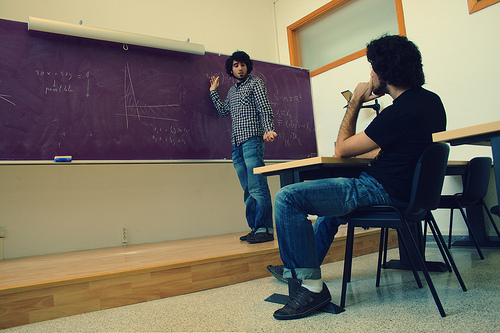The Myth of the Awful American Teacher
Education Rethink 2013-04-02
Last year, while I was a teacher-coach, I visited a school where I saw horrible teaching in three classrooms. I won't go into detail about it, but I was nearly in tears over what the students had to experience. "I can't believe what I've seen. I'm shocked that there is such bad teaching going on," I said to a friend. "I'm starting to rethink the notion that most teachers are good." "There's bad accounting and unethical sales and bad doctors, too," he said. "Yeah, but this was awful," I said. "Well, how many teachers were horrible? How many were great? How many were somewhere in between?" When I stopped to think about the whole sample size, I realized that less than ten percent were bad. About twenty percent were okay. Somewhere around fifteen percent were great. However, all I could remember in the moment were the horrible ones. The next time I did a walkthrough, I kept a grid of practices, questions and observations. What I found was that certain trends were bothersome (the lack of critical thinking across the board) and others were encouraging (small groups, differentiated instruction, supporting language development). Suddenly, I was able to see the outliers as simply that: outliers. Exceptions. Here's where the danger of confirmation bias (finding examples that confirm what I believe) and anecdotal evidence become dangerous. If I go into a school doing walkthroughs and I am focussed on what is wrong, I will sink into confirmation bias. I'll find the wrong that exists. If I go into a school and observe it and then focus on what was most memorable, chances are I'll end up on either extreme, believing that teachers are perfect or that teachers are awful. It's why Won't Back Down is such a subtle, scary narrative. There are bad teachers. Horrible ones. And yet, there are horrible engineers, doctors, scientists, etc. It's why we need to be careful about using our own experiences as students to justify education reforms (both progressive and corporate). The bigger question is how we define success, how we measure and how what the larger trends tend to be. photo credit: Jiuck via photopin cc
